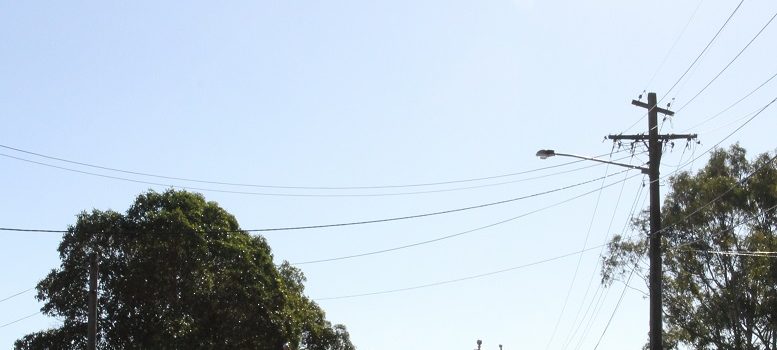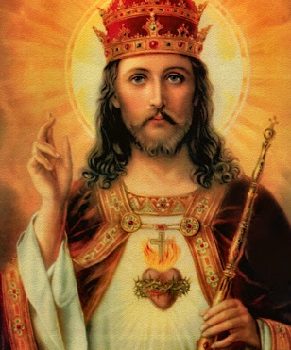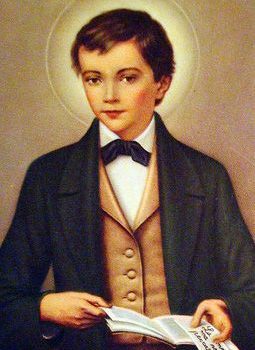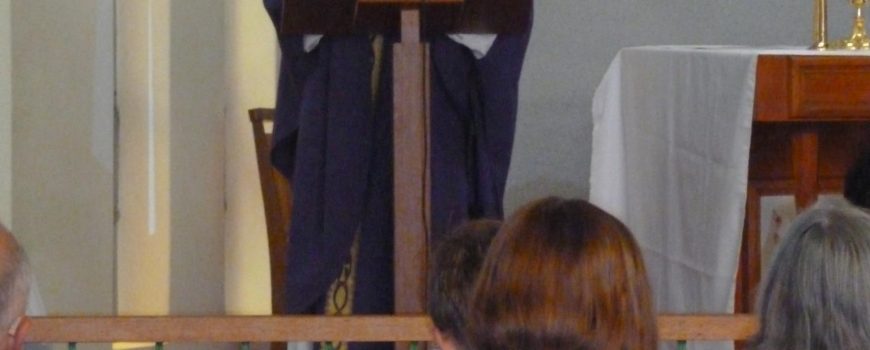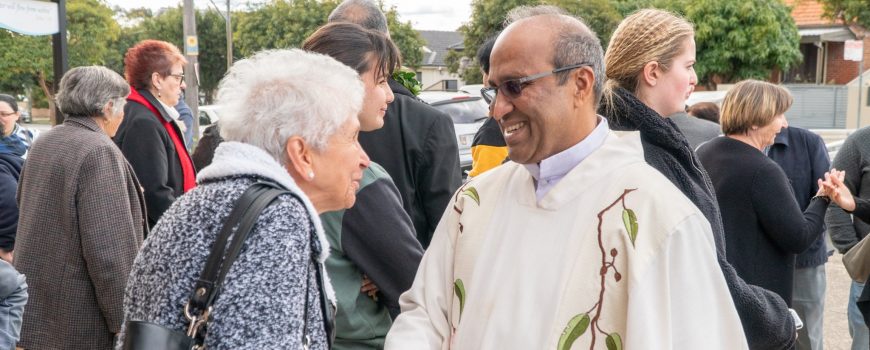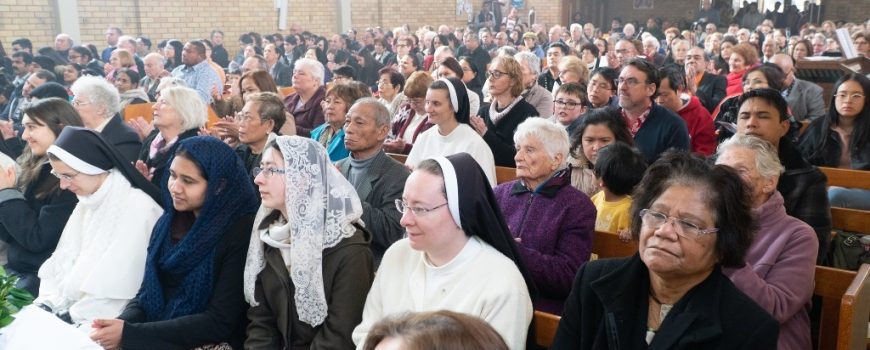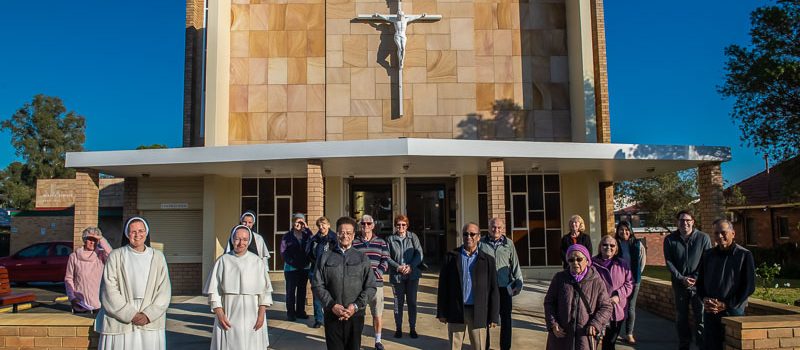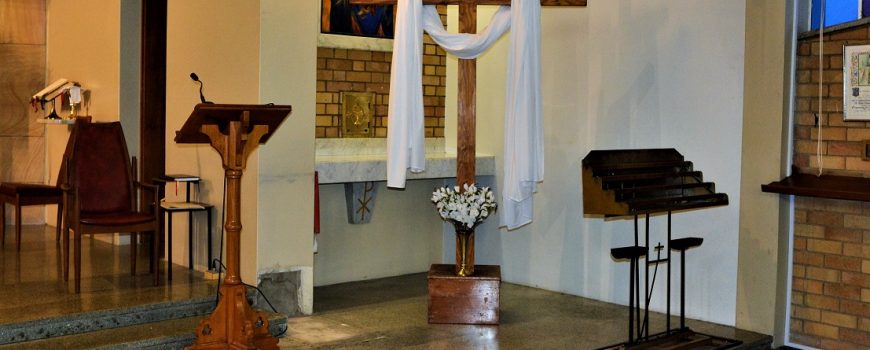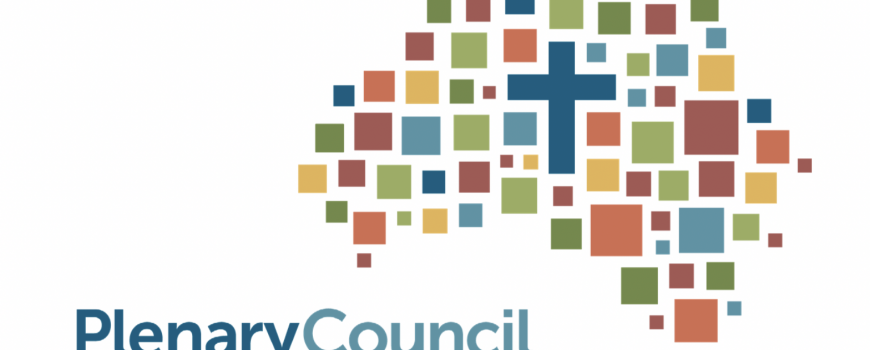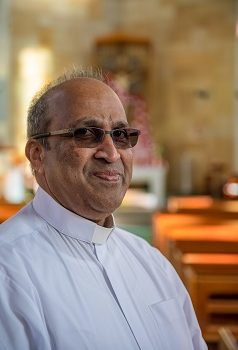See the Signs of God Coming
Federal elections are due in a few months and the politicians are in campaign mode now. Their challenge is to show how they will brighten up the apparently bleak future. COVID restrictions caused a lot of anxiety in terms of economy, mental health, personal freedom, and wellbeing. Climate change and related issues are presenting a gloomy picture. Foreign relations and policies, especially with China, have been worrying many. In these gloomy scenario, the politicians are challenged to take cues from these matters and tell us how they see the future is promising. On the first Sunday of Advent, the Gospel is about recognising a promising future for Christians even in the midst of calamities.
The early Christian Community of Luke went through the horrors of persecution of the Christians by Nero and other rulers, a devastating war in which the city of Jerusalem and the temple were destroyed. In such a situation, what hope the Christians could have for the Kingdom of God? Answering this question, the Gospel uses various prophetic passages from the Old Testament, either explicitly or implicitly. The thread that binds the prophetic verses is their interpretation of the Babylonian assault on Israel and the deportation of the Jews seven centuries before Christ. The prophets showed God’s hand was at work even through the darkest days of the history of Israel. God re-established Israel and its temple. These verses are re-read in Luke to promise that the Kingdom of God will be established in the name of Jesus, in spite of the atrocities and disasters they experience. Thus the Gospel is helping Christians to interpret the world around them through the eyes of the Scripture. Christians are not to succumb to fear and uncertainty. Be alert to all that is happening around you. Find strength in your faith to see God’s Kingdom unfolding trough the events of your own life and around you. When you see the trees sprout leaves, you know that the cold and dark winter is over and a warm and sunny summer is approaching. Similarly, as a disciple of Christ you should be able to read the signs of God’s Kingdom emerging even in difficult times. As we start preparing to celebrate the birth of God into human history and story, see how God’s coming is continuing in varied ways in your life and in the world. We are in preparation, not just for the birth anniversary of Jesus, but the ongoing coming of God and his presence in our present time.
There is a little known fact about St Mary’s Cathedral Sydney. It is a war memorial church and has a statue of an unknown fallen soldier in the nave! I was surprised to find it out many years ago. But it made sense later. Not one, but two, World Wars dominated the history, especially the western in the twentieth century. Hence there have been glorification of wars, erection of war memorials in city centres, and dedication of churches to the memories human conflicts.
Dominic Savio, a school boy, died at the age of fourteen. He was one of the students of St John Bosco. One day, Fr John, speaking to a group of students in their playground, asked a question, “Suppose you are told you will die in an hour’s time, what would you do?”
Once I received an email, asking for the parish account details. Someone wanted to make a donation to the parish. I obliged. Sure enough I received a handsome amount of twenty-five thousand dollars. It was given towards the much needed repair of the Church. There was no appeal for money made and the payment was totally the donor’s initiative. Therefore, it was a surprise. But there was more to the story. The name on the email did not ring any bells. Therefore, I wrote back asking for an introduction from the donor.
To the question “How are you?”, you might answer “I am good”. Is that the right response? In my early years in Sydney, one of my parishioners, a retired teacher, used to correct me, saying that the answer to the question, “How are you?” is “I am well, not good”. What he did not realise is that the philosophy of life has changed and it is impacting the way we speak. We don’t hear many saying “I am well”anymore. The standard answer “I am good” may be a small step, but not insignificant. From it to “anything I do is good” is another step. “Don’t tell me what I should do” is the principle on which some people operate. Such an approach to life is considered praiseworthy in our time.
“I tell those idiots who argue for ‘big bang theory’ and ‘evolution theory’, to read the Bible about creation”. These were the words of a proud Catholic. When I told him that the story of God creating everything in seven days is not meant to be a scientific explanation on the origins of the world; it is rather the theology of the relationship between humans and God.
As I was processing to the altar with six other deacons for my priestly ordination, the choir sang with all gusto, a song familiar to the aspirants of priesthood in Syro Malabar Church. I remember how elated I was to hear them singing praises to the exalted position of priesthood. I don’t deny that a tinge of that had motivated me to seek priesthood as my vocation in the first place, though there were plenty of reminders of sacrifices around me along the way.
I was new to Australia, just a couple of years in the country. I was doing a wedding and the photographer took his job very seriously. He started to direct the ceremony, so much so, to shoot a better photo, he told the couple to repeat the exchange of vows. I had to tell him, “When I need an M.C. I shall tell you. Now you need to mind only photography”. He was not much pleased and said, “They are paying me much more than you”. For him money dictated everything else in life.
The first assembly of the fifth Plenary Council of Australia is to commence on Sunday, 3 October. The first Plenary Council gathered in November 1885. The people of God makes up the Body of Christ called the Church. The Christian Community as the Body of Christ meditated on the mysteries of the Easter experience from the beginning. The New Testament is an account of the promptings of the Holy Spirit in the early Christian Communities and how the early Christians saw the world through the prism of Easter.
he Taliban is notorious for cutting hands off as a form of punishment. Cruel and repulsive as it is, similar expressions in the Bible will rightly be frowned upon. Could Jesus have really said to cut off hands and feet, and to tear out eyes, as we read in Mark 9:42-48, to avoid sinning?
